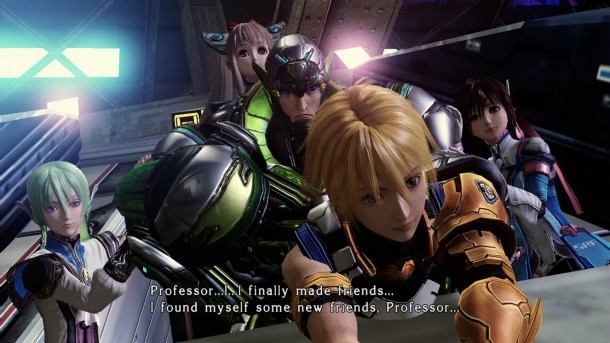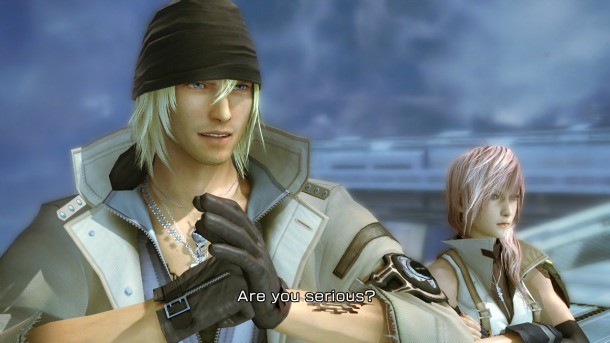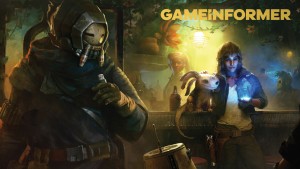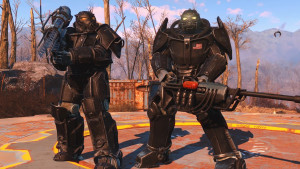Please support Game Informer. Print magazine subscriptions are less than $2 per issue
Opinion: Why Cliché RPGs Won’t Cut It Anymore

The role-playing game genre's focus on stories has always drawn me. Having a reason to play beyond "let's get to the end" is a powerful lure. For over two decades, I've enjoyed watching characters grow to save the world. The ending credits always matter so much more with the added context of a story I'm invested in. Until recently, RPGs were ahead of the curve in these arenas, while many other games settled for superficial reasons to embark on quests - sometimes simply a single line of text like "Your princess is in another castle."
Today's gaming landscape is a different beast. RPGs now have worthy competition in the story department. Take Bioshock Infinite, with its strong political themes alongside ambiguous moments that leave gamers analyzing their true meanings. Adventures like The Walking Dead are emotionally gripping by necessity: Characters have to matter or the big moments don't hit as hard. To be honest, it's been some time since I've had an RPG strike me that way. If RPGs want to stay on top with the industry's ongoing move toward more complex narrative, writing needs to be the focus - and frankly, it needs to be stronger.
Lately, I'm seeing characters and storylines with wasted potential. How many times are we going to see the same archetypes interjected throughout narratives? The older sibling who needs to protect everyone, the arrogant heartthrob who constantly shows off, the soft-spoken girl who can't stand up for herself, or the (sigh) tomboy who's trying to find her feminine side? These characters continually find their way into RPGs, and their thin personalities fail to add any sort of depth or humanity to the tale. I want my characters to move beyond cliché, to not be boiled down to a single trait. Wild Arms 4's Raquel is refreshingly different not only because of her circumstances (she's sick), but because she is multi-dimensional. I still think about Raquel, because she was a walking contradiction - tough, yet weak, keeping to herself yet dying to let someone in.

Another gripe with many traditional RPGs is their predictability. I've seen my share of save-the-world plots as a seasoned fan, but that isn't the core of the problem. If the heroics are new and exciting each time, I'm game. Having the world's destiny in my hands is always exhilarating. One series that does this well is Persona. Yes, you're technically saving the world, but having it set in the real world with all of its everyday activities brings a new dynamic to the adventure.
Can the same backdrops and settings continue to be interesting? While no two people look at a concept the same way, writers need to challenge themselves to think of new twists they can put on these worlds. Look at the political warfare placed on top of Dragon Age: Origins' fantasy backdrop. Atlus' Radiant Historia took time travel and made it feel new with its concept of intertwined timelines. When you get to see a world not only evolve on its own, but also affect it from a parallel world, the plot is much more engaging.
If RPGs want to stand out in the upcoming generation, the stories and characters need to be stronger and more developed. While some do leave their mark, too many are run-of-the-mill. Sadly, many other genres are starting to outshine RPGs in an area where Final Fantasy once ruled the roost with varied casts, surprising plot twists (cough, cough Final Fantasy VII), and villains who got under our skin. Unfortunately, the progress I desire may never happen; after all, an audience still dotes on these familiar scenarios and character types, but resisting any change or advancements won't help in the long run. Look at Square Enix: it's a shadow of its former self. The genre used to be its bread and butter, but its RPGs are now stagnant and struggling, making the company look elsewhere for its identity and financial security.
To remain relevant, RPGs must once again surpass - or at least measure up to - the creativity the rest of the modern games industry is bringing to the table.










